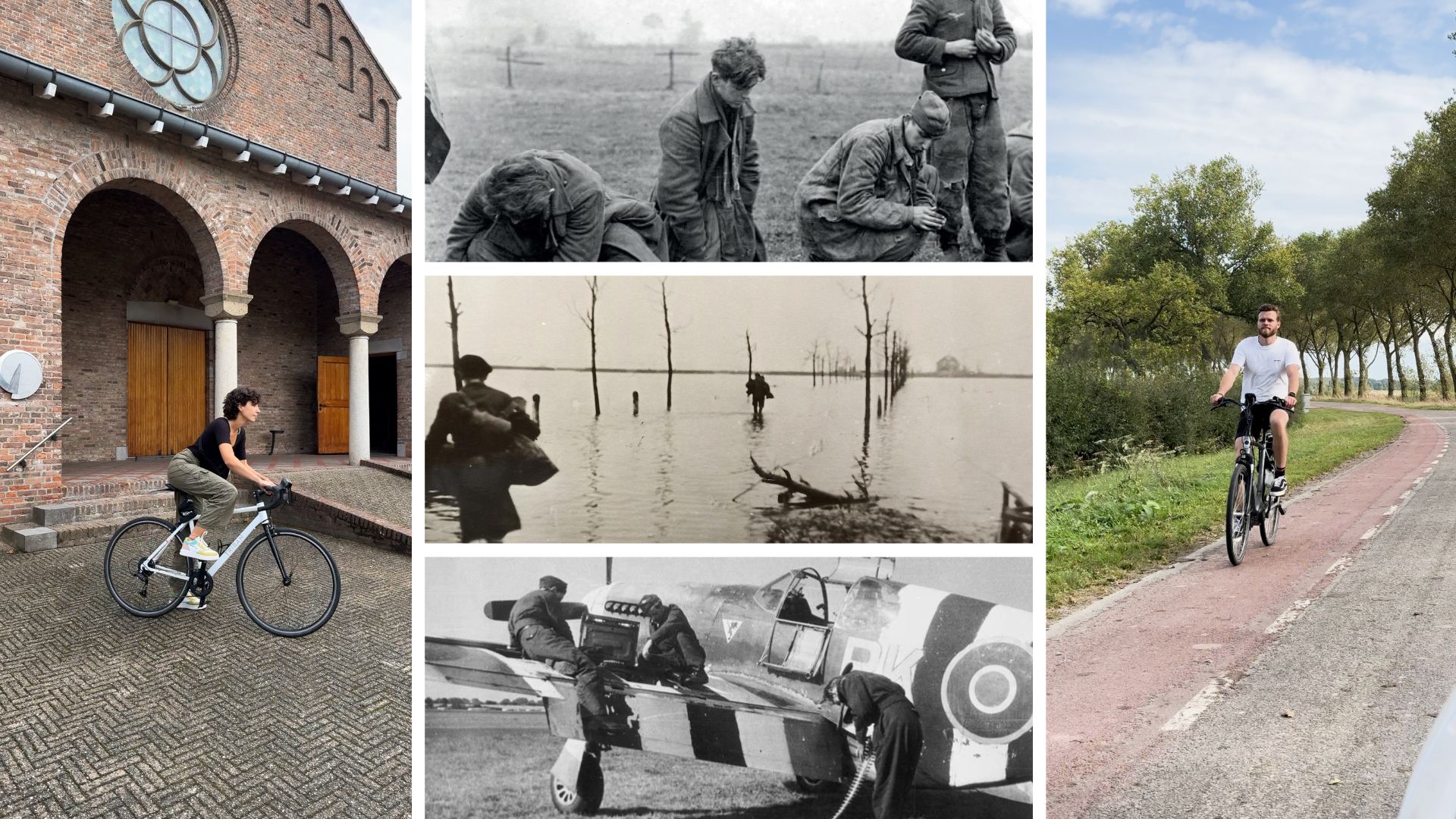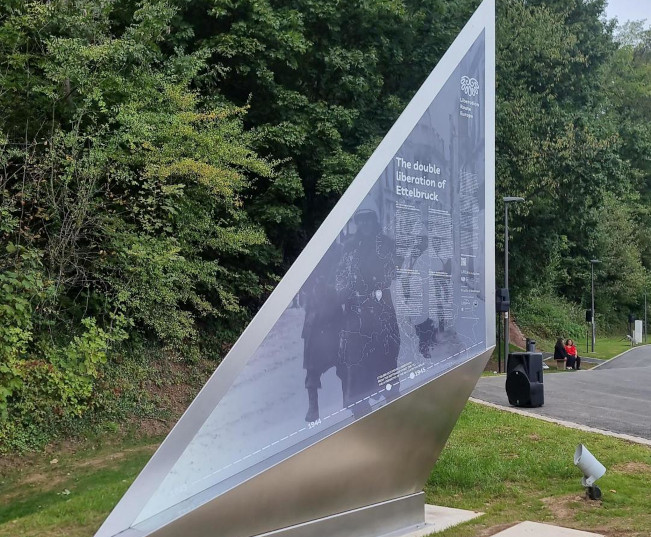On Wednesday, September 25th, a new series of Liberation Route Europe cycling routes was launched at the Maczek Memorial in Breda: the Polish Trails Network. This project was developed in collaboration with partners including the Gdynia Museum, Maczek Memorial Breda, Stichting Polen-Driel, and Brabant Herinnert, with support from the Polish Embassy in the Netherlands. Funded by Vfonds, the initiative features a national cycling route and five local routes that trace the paths of Polish forces in the Netherlands during World War II.
The national route of the Polish Trails Network stretches from Zeeland to Groningen, shedding light on the often-overlooked stories of Polish pilots, aircrews, paratroopers and armoured divisions.
The 1st Polish Armoured Division (formed in Great Britain in 1942 by those who fled Poland after its fall in 1939), led by General Stanisław Maczek, played a pivotal role in liberating Breda and parts of the Noord-Brabant province. Additionally, the 1st Polish Independent Parachute Brigade, led by Major General Stanisław Sosabowski, made significant contributions to the liberation of the country, with many soldiers sacrificing their lives during Operation Market Garden. Despite their significant contribution to the liberation of Europe, many Polish soldiers could not return to communist Poland after the war due to the threat of persecution by the new regime. Many of them remained in exile, leading to their stories being largely forgotten by people in Europe.
The national route interconnects five local cycling routes, each rich in historical significance:
- Polish Cycling Route Driel-Oosterbeek: This path, which begins and finishes at the ‘Information Centre: The Poles of Driel’, focuses on Operation Market Garden and the efforts of Major General Sosabowski and his men.
- Polish Cycling Route Zeeland: Beginning from the Gdynia Museum, riding this route, visitors will commemorate and learn about the events surrounding the Battle of the Scheldt.
- Polish Cycling Route Breda, highlights the liberation of Breda by the 1st Armoured Division under General Maczek’s command.
- Polish Cycling Route Drenthe and the Polish Cycling Route Groningen, which focus on the major contribution of Polish soldiers in the two regions.
The launch event at Maczek Memorial Breda was well-attended, with over 60 people present. During the event, Wout van Aalst, Project Officer at the LRE Foundation, presented the project and emphasized the unique nature of the Polish Trails Network, as it is the first cycling route in the Netherlands that connects various historical sites, stories, and museums related to Polish contributions during WWII.
The event concluded with a presentation by Jack Didden, author of the guidebook for the Polish Trails Network in Breda.

